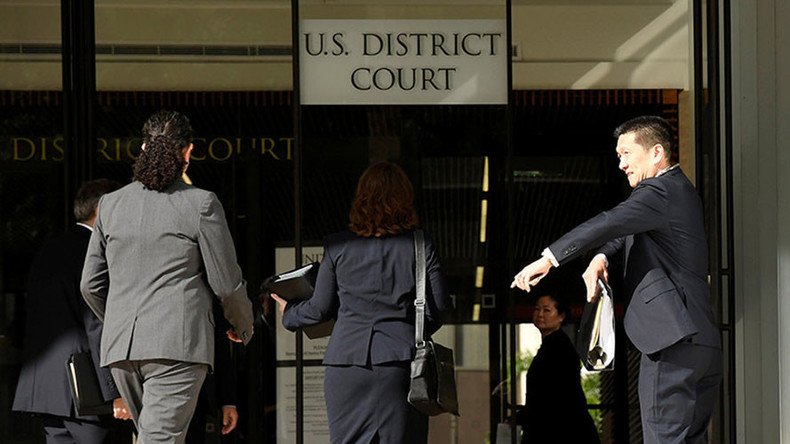Judge issues nationwide restraining order against Trump's second travel ban

Hours before President Donald Trump's revised ban on issuing visas to travelers from six majority-Muslim countries was set to go into effect, a federal judge in Hawaii issued a temporary restraining order preventing the ban's implementation nationwide.
"Plaintiffs have met their burden of establishing a strong likelihood of success on the merits of their Establishment Clause claim," Judge Derrick Watson wrote in his decision Wednesday, referring to the First Amendment's requirement of the separation of church and state.
Hawaii Attorney General Douglas Chin argued the ban discriminated on the basis of nationality, exceeded the president’s authority and was “motivated by anti-Muslim animus.” He previously referred to the executive order as "Muslim Ban 2.0"
Trump responded to the ruling during a rally in Nashville, Tennessee, Wednesday evening, vowing to take the case to the Supreme Court if necessary.
"The order he blocked was a watered down version of the first order," which "should have never been blocked to start with," Trump told the crowd.
Trump called the district judge in Hawaii "part of the much-overturned 9th Circuit Court," drawing boos from the rally attendees. He added, "I have to be nice otherwise I’ll be criticized for speaking poorly of our courts," before referring to the media as "dishonest" to the delight of the crowd.
Trump said it was within the president's power to halt US entry, "when he or she deems it to be in the national interest of our country." He then clarified that the "she" will never be Hillary Clinton, which prompted "Lock her up!" chants from the audience.
The state also cited economic harms the ban would cause, including to its tourism industry and the ability to recruit foreign workers and students, saying the ban would “undermine its commitment to being 'one of the most diverse institutions of higher education' in the world.”
Trump signed the revision of a previous travel ban after it was the subject of repeated negative rulings in federal court, most recently in the 9th Circuit Court of Appeals in Seattle, Washington, last month.
The second executive order, signed March 6, was set to go into effect at 12:01am Thursday. The Wednesday evening ruling stops that from going forward.
Federal rulings in similar hearings for lawsuits over the travel ban in Washington and Maryland are also expected before midnight.
The revised executive order dropped Iraq from the previous order's list of affected countries. Under the new order, no new green cards or visas would be issued to Iran, Libya, Somalia, Sudan, Syria and Yemen for at least 90 days, while also halting refugees for 120 days and limiting the total number of admissions to 50,000 for the 2017 fiscal year.
Imam of the Muslim Association of Hawaii, Dr. Ismail Elshikh, was a plaintiff in the Hawaii case. In the ruling, Elshikh is said to have declared the travel ban “devastating to me, my wife and children.” His mother-in-law is a Syrian national without a visa, and although she most recently visited his family in Hawaii in 2005, he argues that the executive order puts her at risk. The executive order does include such a situation as when a waiver "could be appropriate."
The ruling also noted "significant and unrebutted evidence of religious animus" behind the executive order, including remarks made by then-candidate Trump to CNN in March 2016.
“I think Islam hates us,” Trump told CNN's Anderson Cooper, the court noted.
The Department of Justice released a response Wednesday night, saying it "strongly disagrees with the federal district court’s ruling, which is flawed both in reasoning and in scope. The President’s Executive Order falls squarely within his lawful authority in seeking to protect our Nation’s security, and the Department will continue to defend this Executive Order in the courts."












